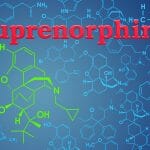Suboxone and Kratom are two seeming miracle solutions to the opioid epidemic. One prescription. One…
According to the National Institute on Drug Abuse, more than 115 Americans die after overdosing on opioids, including prescription painkillers and heroin. This sobering statistic highlights the need to address the opioid epidemic to save the lives of our friends, family members, and loved ones.
One of the most controversial treatment options in response to the opioid epidemic is suboxone. Once hailed as the miracle pharmaceutical drug to treat heroin and opiate addiction, suboxone is the sublingual film consisting of buprenorphine and naloxone. It is one of only two heroin treatments that cut the death rate from opioid addiction in half when combined with psychological support.
Buprenorphine is an opioid but is unlike other opioids in that it is a partial opioid agonist. With its long half-life and mixture with naloxone, supposed to suppress the addictive properties of buprenorphine, Suboxone is designed to suppress opioid withdrawal symptoms. Suboxone is also used as a deterrent for getting high, reportedly blocking the more pleasurable effects opioid abuse.
The Darker Side of Suboxone
Suboxone, though, has a dark side. Addiction is one of the more severe side-effects of suboxone use. While heroin and prescription withdrawals can last up to seven days, withdrawal from Suboxone lasts anywhere from one to several months.
Aside from the much longer withdrawal than heroin, Suboxone has an extremely long list of common side effects:
- Lightheadedness
- Dizziness
- Fainting
- Nausea and vomiting
- Trouble paying attention
- Increased or decreased heart rate
- Blurry vision
- And more
Serious side effects of Suboxone include:
- Addiction
- Severe breathing problems
- Opioid withdrawal
- Liver problems
- Low blood pressure
Can Suboxone Get You High?
Yes, Suboxone can get you high, if you inject it or snort it or take it with benzodiazepines. Any of these methods of use can also be fatal. The New York Times reported, in 2016, on the story of a 24-year-old woman whose addiction to suboxone led a deadly overdose involving benzos and suboxone. After years of “box shopping” (visiting multiple clinics searching out suboxone prescriptions), she is one of many people who has become hopelessly addicted to the medication that was supposed to cure a different addiction.
Many people who are addicted to heroin, OxyContin, morphine, fentanyl, and other opioids illegally buy or obtain Suboxone to get through the withdrawals until they can get their next “fix.” This then becomes a dangerous cycle called the “suboxone maintenance program,” which can last for years and make treatment of opioid addiction more difficult.
Many intravenous heroin and opioid users inject Suboxone. It has become a growing problem for people who are, or have been, in jail. A recent NPR article profiles the increasing problem of buprenorphine shortages for prisoner treatment and the resulting black-market Suboxone epidemic. Seen as a way to stay away from heroin when someone cannot get into real treatment, politicians, medical experts, medical professionals, and former addicts have differing opinions on the effectiveness and viability of using Suboxone without a prescription.
Too often, people who are already addicted to opioids and heroin turn to black market Suboxone in a desperate attempt to not feel “dope sick” anymore. With the temporary relief from the severe and acute opioid withdrawal, hope seems to come in the form of a film or a pill. Many people are not aware that Suboxone addiction can be fatal and more challenging to get off than other opioids, with withdrawals last for several months long.
Find Hope and Healing
If you or someone you care about is struggling with opioid addiction, it’s crucial to seek professional help from a trusted rehabilitation center like Boardwalk Recovery Center. Our compassionate team understands the complexities of addiction and is dedicated to guiding you towards a life of sobriety and wellness.
Boardwalk Recovery Center offers comprehensive addiction treatment programs, including our Intensive Outpatient Program (IOP), designed to provide structured support while allowing flexibility for work and family commitments. Our approach combines evidence-based therapies with a holistic focus on physical, emotional, and mental health, ensuring personalized care tailored to your unique needs.
Choosing the right treatment center can make all the difference in your recovery journey. At Boardwalk Recovery Center, we’re committed to helping you reclaim your life from addiction and supporting you every step of the way. Contact us today to learn more about our programs and take the first step towards a healthier, substance-free future.
Life can be good again and we’d like to show you how.









